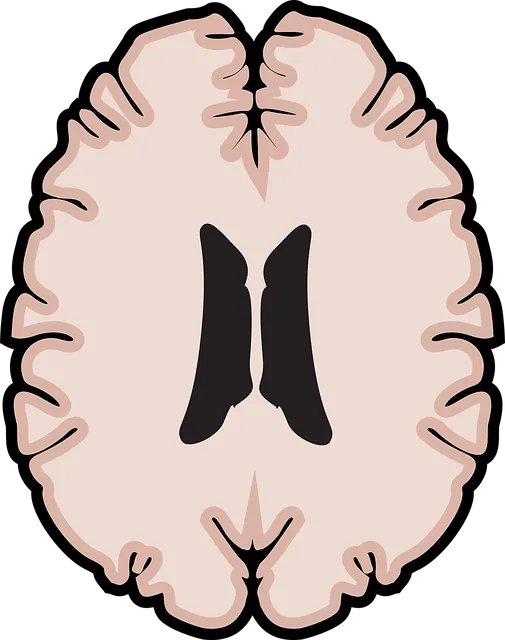Crisis Intervention Teams (CITS) are vital components of modern mental healthcare, particularly within platforms like Superior Kaiser Permanente. These teams provide immediate support and de-escalation techniques for severe emotional crises, preventing harmful outcomes. Trained through rigorous programs including simulations, CITS members swiftly assess situations and implement evidence-based strategies. Superior Kaiser Permanente stands out with comprehensive mental health coverage backed by diverse training programs focused on personal and organizational well-being. Through initiatives like mindfulness education and stress reduction methods, the organization fosters a culture of care, resilience, and improved job satisfaction. Effective crisis intervention team training, coupled with access to Superior Kaiser Permanente mental health coverage, empowers teams to proactively manage crises and promote long-term mental wellness in communities.
In today’s world, effective crisis intervention is crucial for addressing mental health challenges promptly. This article explores the significance of Crisis Intervention Teams (CITs) as a vital component of mental health care. We delve into Kaiser Permanente’s comprehensive training programs, which ensure superior mental health coverage. By examining effective strategies, we highlight how these initiatives enhance community support, ultimately improving crisis response and fostering better mental well-being.
- Understanding Crisis Intervention Teams: A Vital Component of Mental Health Care
- Kaiser Permanente's Approach to Training Programs: Ensuring Comprehensive Coverage
- Effective Strategies for Crisis Intervention Team Training: Enhancing Community Support
Understanding Crisis Intervention Teams: A Vital Component of Mental Health Care

Crisis Intervention Teams (CITS) are a vital component of modern mental health care systems, especially in the context of comprehensive coverage like that offered by Superior Kaiser Permanente. These specialized teams play a crucial role in responding to individuals experiencing severe emotional crises or psychotic episodes. By integrating mental wellness and compassion cultivation practices into their approach, CITS provide immediate support and de-escalation techniques, preventing potentially harmful outcomes.
The Mental Health Awareness movement has emphasized the importance of early intervention, and CITS are designed to meet this need effectively. Through rigorous training programs that include practical scenarios and simulations, team members learn to assess situations swiftly, implement evidence-based strategies, and foster a culture of empathy and understanding. This specialized training ensures that individuals in crisis receive the highest quality of care, leveraging the expertise of professionals dedicated to improving mental wellness through every touchpoint of the intervention process.
Kaiser Permanente's Approach to Training Programs: Ensuring Comprehensive Coverage

Kaiser Permanente has established itself as a leader in comprehensive mental health coverage, offering an extensive range of training programs tailored to address various aspects of psychological well-being. Their approach focuses on both individual growth and organizational support, ensuring that employees are equipped to handle crises effectively. Through these initiatives, Kaiser Permanente not only promotes superior Kaiser Permanente mental health coverage but also prioritizes burnout prevention and emotional intelligence development.
The organization’s training programs incorporate innovative strategies for enhancing mental wellness coaching, fostering a culture of care and resilience within the workplace. By investing in such initiatives, Kaiser Permanente recognizes the impact of employee well-being on overall organizational success, ultimately contributing to improved job satisfaction and productivity. This holistic approach underscores their commitment to not only providing exceptional mental health services but also nurturing environments that support emotional intelligence and sustain long-term mental wellness.
Effective Strategies for Crisis Intervention Team Training: Enhancing Community Support

Effective crisis intervention team training programs are pivotal in enhancing community support and fostering a culture of resilience. One key strategy involves incorporating Stress Reduction Methods into the curriculum. By teaching participants techniques such as mindfulness, deep breathing exercises, and cognitive reframing, they gain valuable tools to manage crises proactively. This not only benefits individuals within the team but also encourages them to extend these practices to their communities, creating a ripple effect of calm and support.
Additionally, Mental Health Education Programs Design should prioritize interactive and engaging formats. Workshops that include role-playing scenarios, case studies, and group discussions allow trainees to apply theoretical knowledge in practical settings. Leveraging the resources offered by superior Kaiser Permanente mental health coverage can further enrich these programs by providing access to expert speakers, evidence-based materials, and ongoing support for trainees post-training. Such comprehensive initiatives empower crisis intervention teams to effectively assist others while also promoting their own well-being.
Crisis intervention team training programs, such as those offered by Kaiser Permanente, play a pivotal role in enhancing community support and ensuring superior mental health coverage. By equipping individuals with effective strategies, these programs empower communities to better navigate and respond to mental health crises. Through comprehensive training, teams can provide timely and compassionate support, ultimately improving outcomes for those in need.






